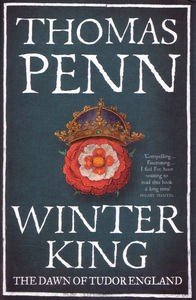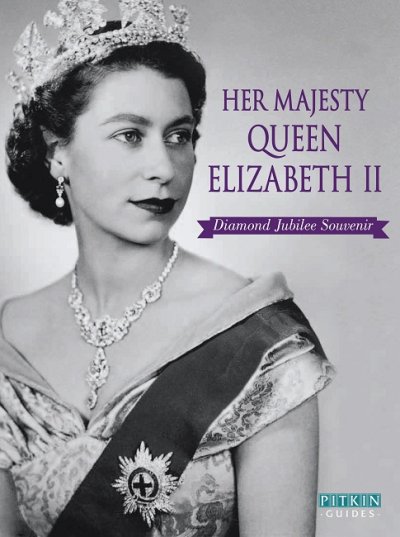Warren
Administrator in Memoriam
- Joined
- Jan 22, 2005
- Messages
- 15,447
- City
- Sydney
- Country
- Australia
"Winter King: The Dawn of Tudor England", Thomas Penn 2011 [Henry VII]
"Winter King: The Dawn of Tudor England"
by Thomas Penn
Published: 20/10/2011
Format: Hardback, 456 pages
ISBN-13: 9781846142024
ISBN-10: 1846142024
reviews (excerpts)
Winter King: The Dawn of Tudor England by Thomas Penn - The Observer
In Winter King, first-time historian Thomas Penn has written a definitive and accessible account of the reign of Henry VII that will alter our view not just of Henry, but of the country he dominated and corrupted, and of the dynasty he founded.
The royal couple's determination to make more children to replace the one they had lost ended in tragedy, and Penn is at his most sympathetic to Henry when the wife that he married for political gain, but probably learned to love, died in childbirth. In his depiction of Elizabeth of York, the Plantagenet princess who brought popular support and Yorkist loyalties to the Tudor arriviste, Penn offers us an unusually engaging portrait. Instead of the usual picture of a passive, dominated young woman, heroically bearing children in the enemy camp, this account suggests that she was equal to her situation, and brought to the Tudor court the easy grace and informality of her parents: the glamorous Edward IV and the famously beautiful Elizabeth Woodville.
Margaret Beaufort, Henry's mother, has been neglected by historians, but in this account she is frequently glimpsed. Penn describes her nun-like appearance, her eye for household detail and discipline, and notes that whenever Henry suffered his regular illness, Lady Margaret turned up with physicians, remedies, her own bed and a barrel of her favourite wine.
Winter King: The Dawn of Tudor England | Thomas Penn | Review by The Spectator
There is something of Gordon Brown in the older Henry VII: an impression of darkness, of paranoia and barely suppressed rage, not to mention the terrifying tax grabs and tormenting of enemies. But Gordon was never quite as entertaining, or frightening, as Thomas Penn’s Winter King in this brilliant mash-up of gothic horror and political biography.
The 28-year-old who won the battle of Bosworth in 1485 was a leader of some charm, even charisma, but also a damaged man, ‘infinitely suspicious’. He did not know England and was acutely aware that what had been won by the sword could as easily be lost by it. Henry had gained his victory with the support of those Yorkists who had turned against Richard III after the disappearance of Edward IV’s sons, the princes in the Tower. Henry carried out his promise to them to marry Edward IV’s daughter, Elizabeth of York, but was crowned in his own ‘right’ – and it was a ‘right’ that was often to be questioned. With the last Plantagenet – the Earl of Warwick – kept in the Tower, his enemies set up pretenders against him. For Penn a key moment is the appearance in 1491 of a young man who claimed to be Richard, Duke of York, son of Edward IV. Even Sir William Stanley, the man who had crowned Henry at Bosworth, was prepared to betray him for this boy. The pretender was executed in 1499 as Perkin Warbeck. Warwick, who had not left the Tower since childhood, was also killed. But Henry never felt safe, and the deaths of his elder son, Prince Arthur, in 1502, and his wife the following year, seemed to shut all the light out of his life.
Henry disappeared like a spider into his private apartments. There he spun a web that allowed him unprecedented control over his subjects. He described it as keeping them ‘in danger at his pleasure’. Earlier kings had bound offenders and suspects for their good behaviour on pain of paying a ‘debt’. Henry VII extended this system to the entire propertied class. Opposition was priced out of the market. Penn’s description of this Tudor tyranny is a tour de force: both scholarly and a pleasure to read, covering the breadth of the European political scene, while providing the details that allow us to feel intimately the terror at home. Hope for the future fixed on the young Prince of Wales, the future Henry VIII. He is the spring that, at last, follows the Winter King. Unlike Gordon Brown’s successor, Henry VIII inherits coffers stuffed with cash (if Henry VII was ‘led into avarice’, it was, at least, to some good purpose). The monster is dead. People rejoice. But, this being a horror story, Penn leaves us with the icy sensation of some unimaginable terror ahead.
Winter King: The Dawn of Tudor England | BBC History Magazine
The Wars of the Roses continued long after Richard III’s death at Bosworth in 1485. Henry Tudor, whose claim to the throne was almost non-existent, became king solely because he was the only candidate available to challenge Richard, and although he married Edward IV’s eldest daughter, many die-hard Yorkists would never accept him. He survived plot after plot, but constant danger turned him into a paranoiac. Thomas Penn brilliantly recreates his strange, Machiavellian personality and the “sustained state of emergency” that was his reign.
His wealth came from financial expertise rather than parsimony (he spent lavishly on clothes, jewellery and building), as he had acquired a remarkable knowledge of the commodity markets. Penn shows how he made enormous profits from the illegal alum trade with the Turks, loaning money and ships to Italian merchants, and controlling the supply of alum into England – where it was in demand as a dye-fixer by clothmakers.
In attempting to found a dynasty, his elder son Arthur’s betrothal to the king and queen of Spain’s daughter was a coup for the parvenu Tudors. It was spoiled by the prince’s death and her father’s refusal to pay her dowry. Whether or not Catherine of Aragon would marry the future Henry VIII instead gives the book an extra focus. This impressive book will certainly become the definitive study of our strangest, most mysterious, king.
V cover
promotional use, not subject to copyright
"Winter King: The Dawn of Tudor England"
by Thomas Penn
Published: 20/10/2011
Format: Hardback, 456 pages
ISBN-13: 9781846142024
ISBN-10: 1846142024
reviews (excerpts)
Winter King: The Dawn of Tudor England by Thomas Penn - The Observer
In Winter King, first-time historian Thomas Penn has written a definitive and accessible account of the reign of Henry VII that will alter our view not just of Henry, but of the country he dominated and corrupted, and of the dynasty he founded.
The royal couple's determination to make more children to replace the one they had lost ended in tragedy, and Penn is at his most sympathetic to Henry when the wife that he married for political gain, but probably learned to love, died in childbirth. In his depiction of Elizabeth of York, the Plantagenet princess who brought popular support and Yorkist loyalties to the Tudor arriviste, Penn offers us an unusually engaging portrait. Instead of the usual picture of a passive, dominated young woman, heroically bearing children in the enemy camp, this account suggests that she was equal to her situation, and brought to the Tudor court the easy grace and informality of her parents: the glamorous Edward IV and the famously beautiful Elizabeth Woodville.
Margaret Beaufort, Henry's mother, has been neglected by historians, but in this account she is frequently glimpsed. Penn describes her nun-like appearance, her eye for household detail and discipline, and notes that whenever Henry suffered his regular illness, Lady Margaret turned up with physicians, remedies, her own bed and a barrel of her favourite wine.
Winter King: The Dawn of Tudor England | Thomas Penn | Review by The Spectator
There is something of Gordon Brown in the older Henry VII: an impression of darkness, of paranoia and barely suppressed rage, not to mention the terrifying tax grabs and tormenting of enemies. But Gordon was never quite as entertaining, or frightening, as Thomas Penn’s Winter King in this brilliant mash-up of gothic horror and political biography.
The 28-year-old who won the battle of Bosworth in 1485 was a leader of some charm, even charisma, but also a damaged man, ‘infinitely suspicious’. He did not know England and was acutely aware that what had been won by the sword could as easily be lost by it. Henry had gained his victory with the support of those Yorkists who had turned against Richard III after the disappearance of Edward IV’s sons, the princes in the Tower. Henry carried out his promise to them to marry Edward IV’s daughter, Elizabeth of York, but was crowned in his own ‘right’ – and it was a ‘right’ that was often to be questioned. With the last Plantagenet – the Earl of Warwick – kept in the Tower, his enemies set up pretenders against him. For Penn a key moment is the appearance in 1491 of a young man who claimed to be Richard, Duke of York, son of Edward IV. Even Sir William Stanley, the man who had crowned Henry at Bosworth, was prepared to betray him for this boy. The pretender was executed in 1499 as Perkin Warbeck. Warwick, who had not left the Tower since childhood, was also killed. But Henry never felt safe, and the deaths of his elder son, Prince Arthur, in 1502, and his wife the following year, seemed to shut all the light out of his life.
Henry disappeared like a spider into his private apartments. There he spun a web that allowed him unprecedented control over his subjects. He described it as keeping them ‘in danger at his pleasure’. Earlier kings had bound offenders and suspects for their good behaviour on pain of paying a ‘debt’. Henry VII extended this system to the entire propertied class. Opposition was priced out of the market. Penn’s description of this Tudor tyranny is a tour de force: both scholarly and a pleasure to read, covering the breadth of the European political scene, while providing the details that allow us to feel intimately the terror at home. Hope for the future fixed on the young Prince of Wales, the future Henry VIII. He is the spring that, at last, follows the Winter King. Unlike Gordon Brown’s successor, Henry VIII inherits coffers stuffed with cash (if Henry VII was ‘led into avarice’, it was, at least, to some good purpose). The monster is dead. People rejoice. But, this being a horror story, Penn leaves us with the icy sensation of some unimaginable terror ahead.
Winter King: The Dawn of Tudor England | BBC History Magazine
The Wars of the Roses continued long after Richard III’s death at Bosworth in 1485. Henry Tudor, whose claim to the throne was almost non-existent, became king solely because he was the only candidate available to challenge Richard, and although he married Edward IV’s eldest daughter, many die-hard Yorkists would never accept him. He survived plot after plot, but constant danger turned him into a paranoiac. Thomas Penn brilliantly recreates his strange, Machiavellian personality and the “sustained state of emergency” that was his reign.
His wealth came from financial expertise rather than parsimony (he spent lavishly on clothes, jewellery and building), as he had acquired a remarkable knowledge of the commodity markets. Penn shows how he made enormous profits from the illegal alum trade with the Turks, loaning money and ships to Italian merchants, and controlling the supply of alum into England – where it was in demand as a dye-fixer by clothmakers.
In attempting to found a dynasty, his elder son Arthur’s betrothal to the king and queen of Spain’s daughter was a coup for the parvenu Tudors. It was spoiled by the prince’s death and her father’s refusal to pay her dowry. Whether or not Catherine of Aragon would marry the future Henry VIII instead gives the book an extra focus. This impressive book will certainly become the definitive study of our strangest, most mysterious, king.
V cover
promotional use, not subject to copyright
Attachments
Last edited:








